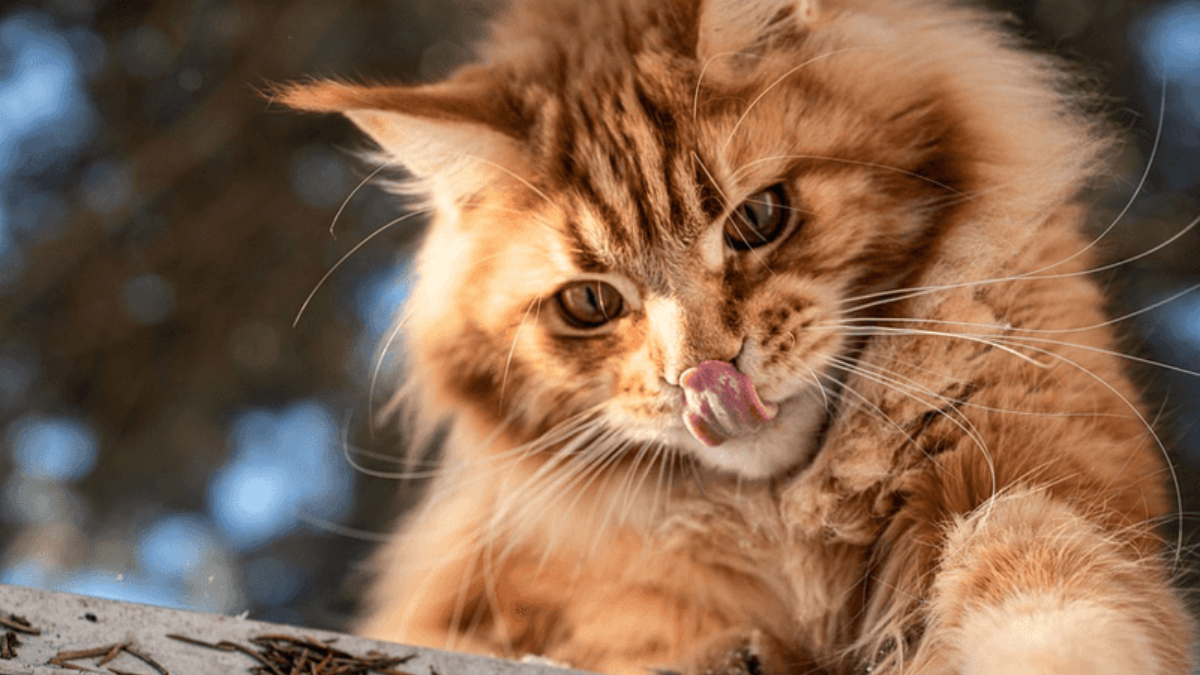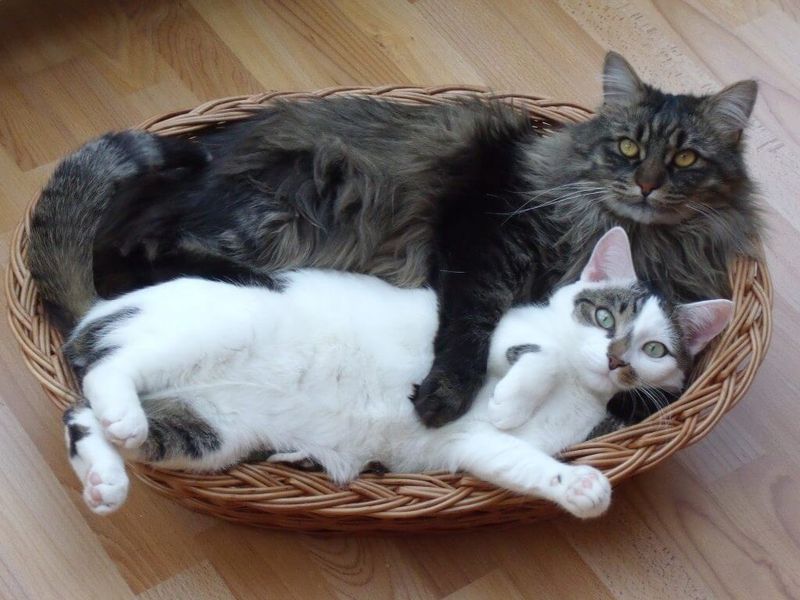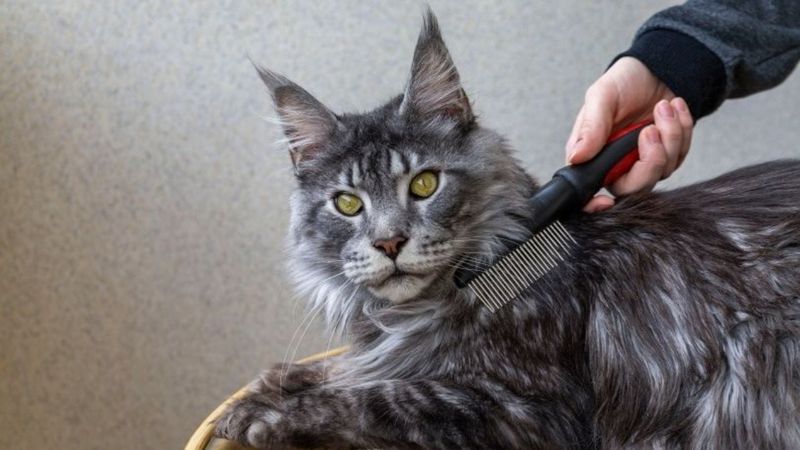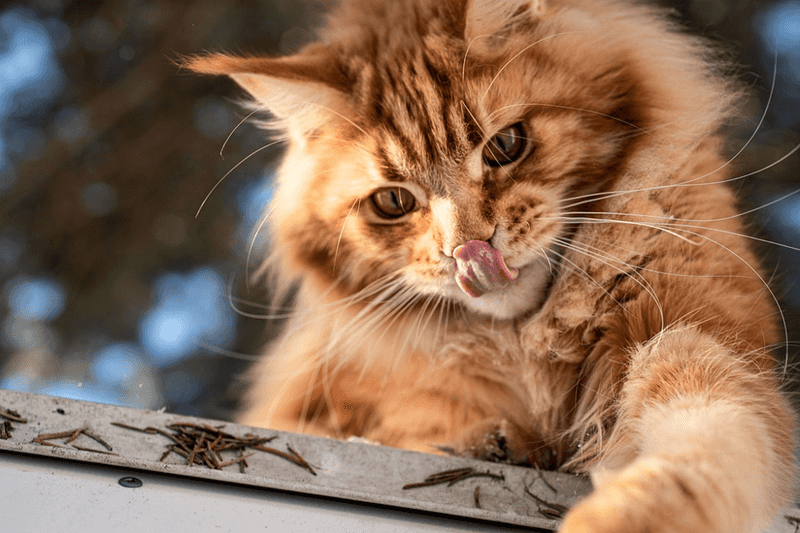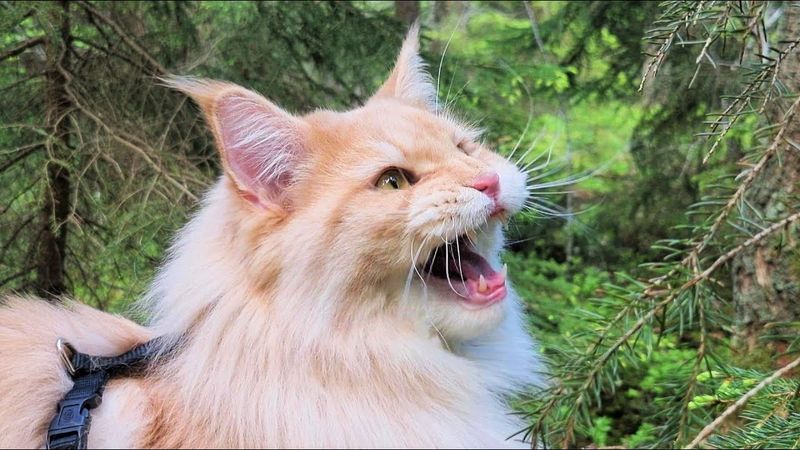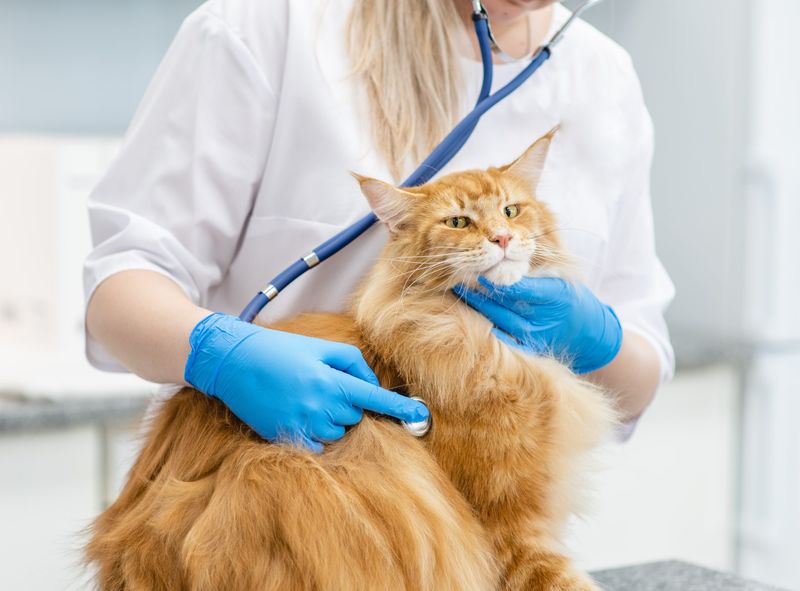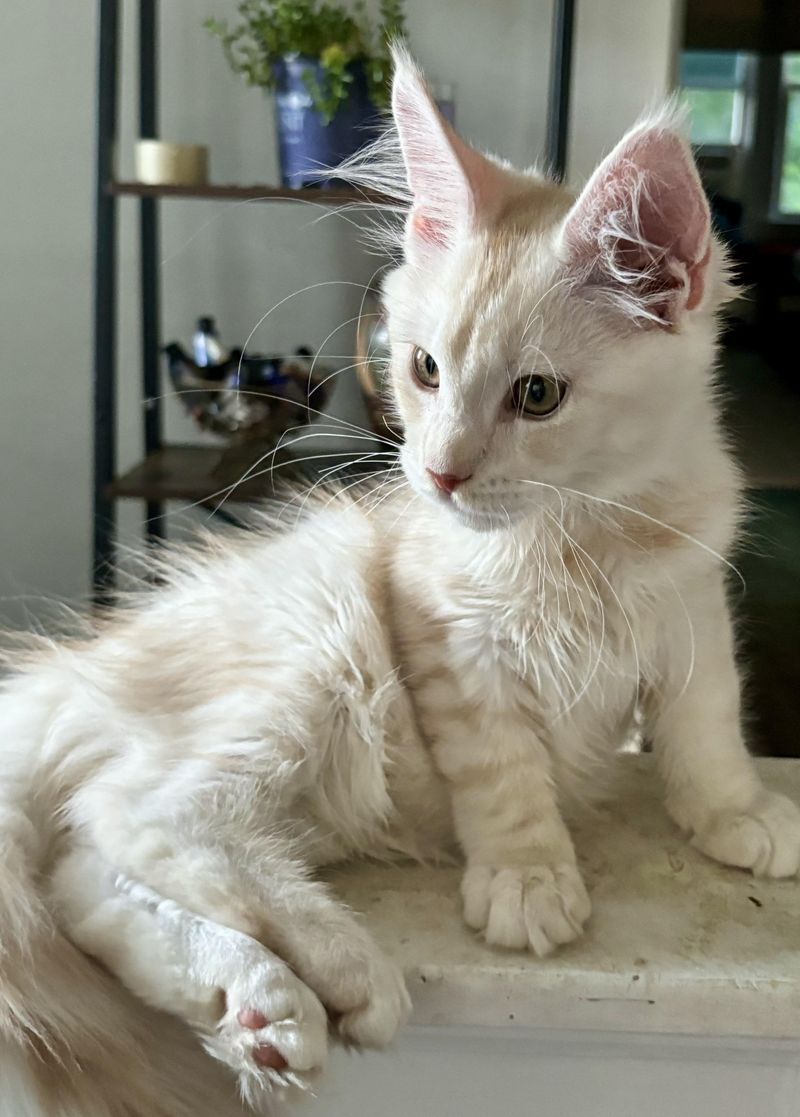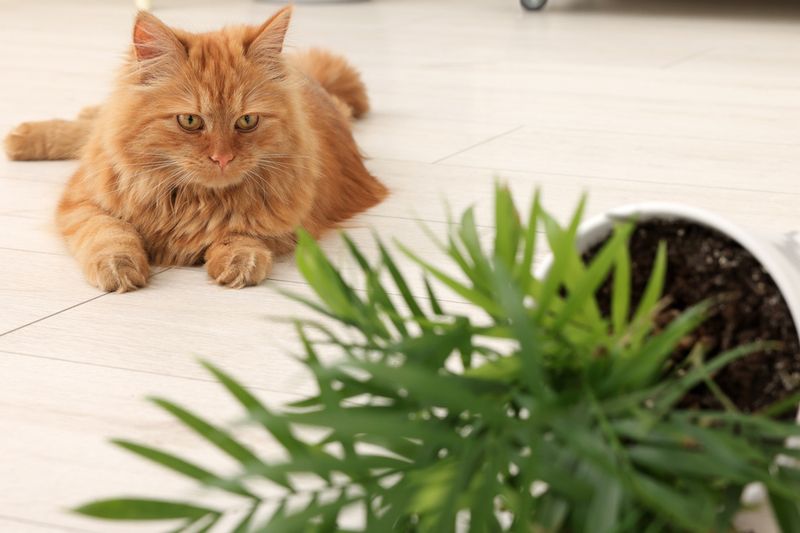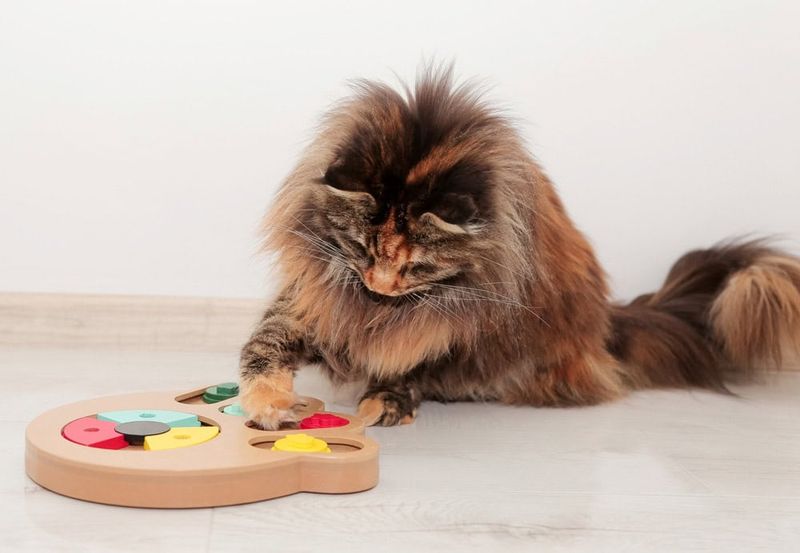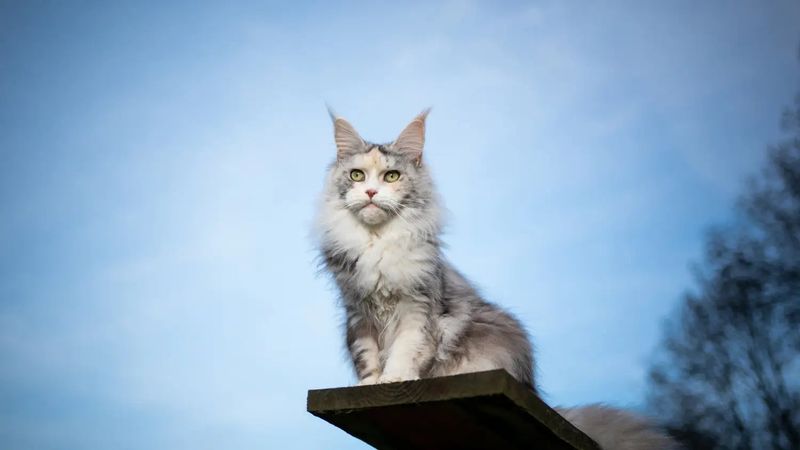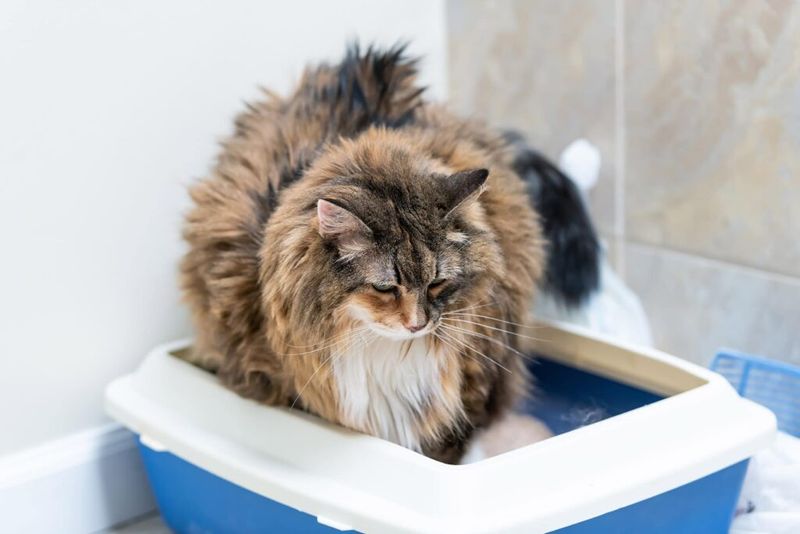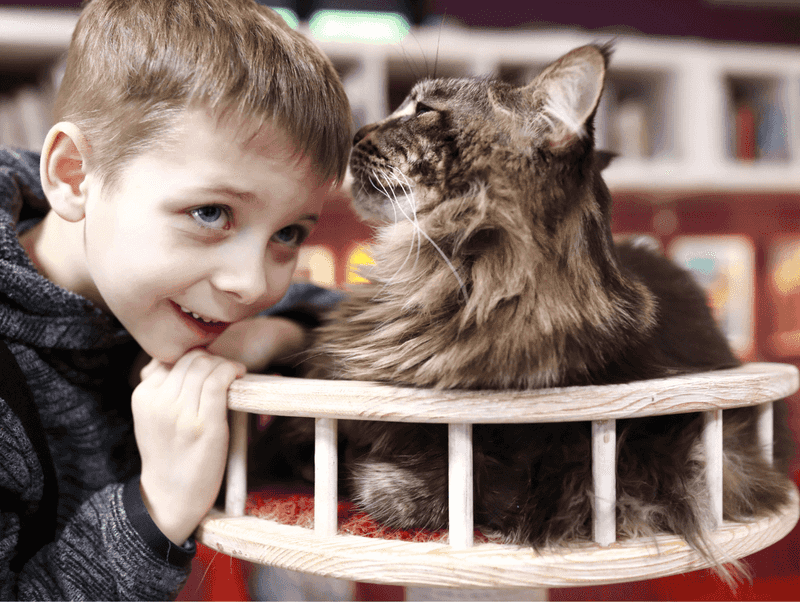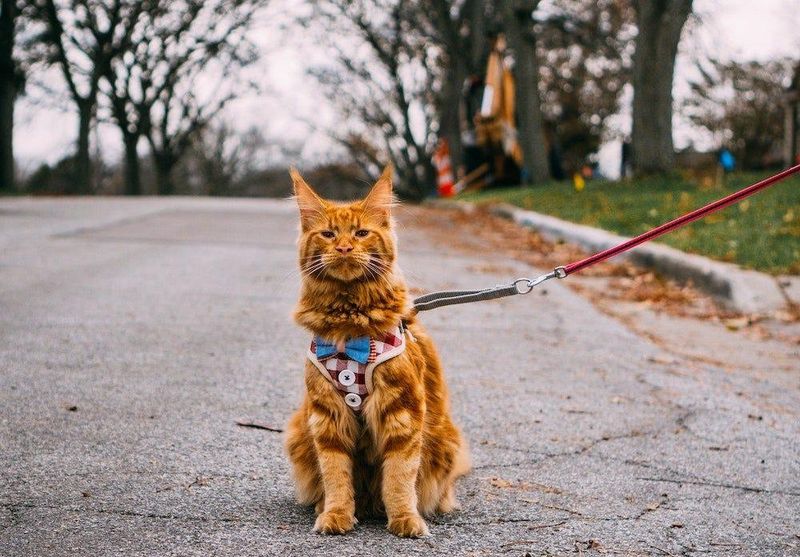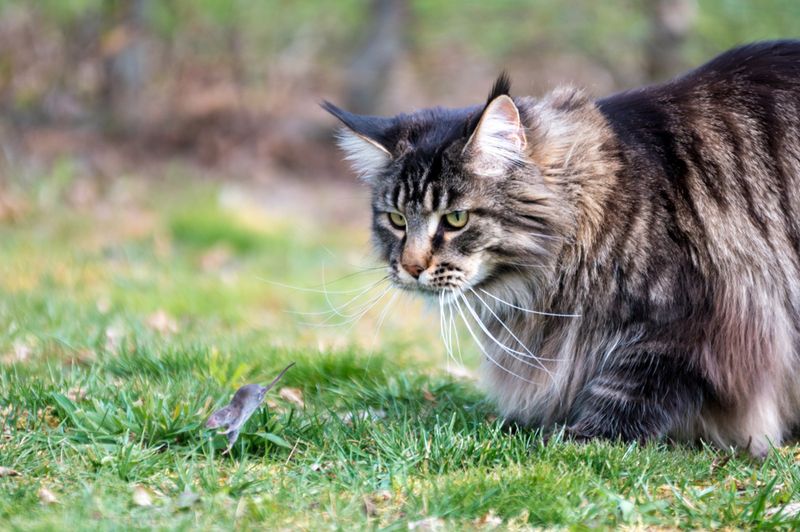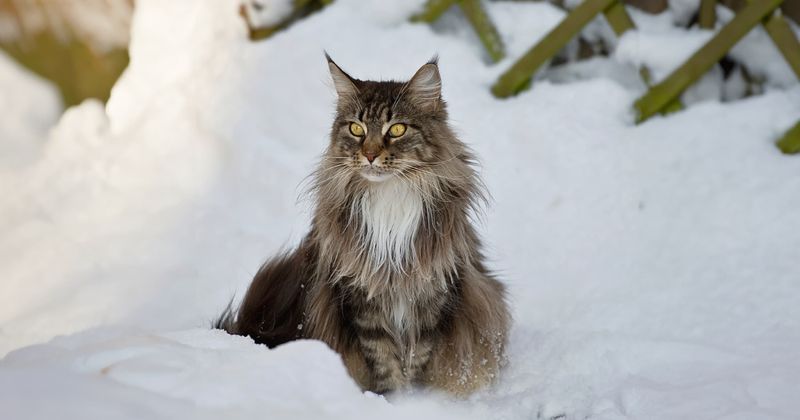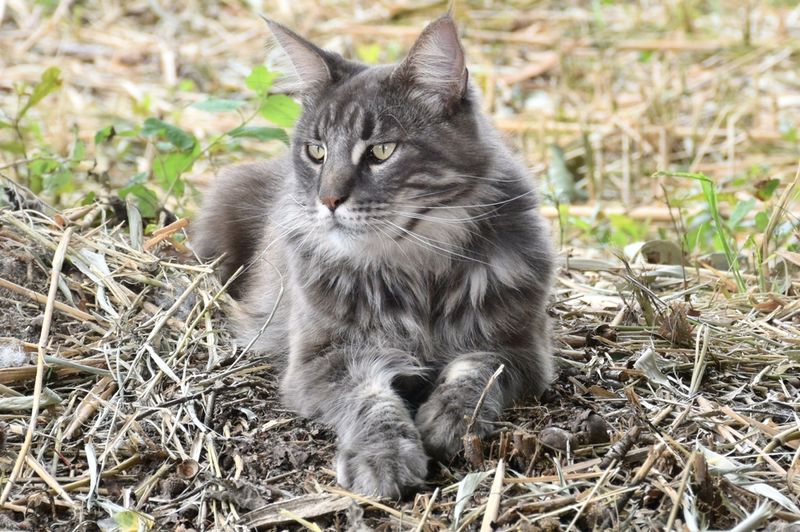📖 Table of Content:
- 1. Enormous Size Requires Extra Space
- 2. Constant Grooming Demands
- 3. Hefty Food Bills
- 4. Vocal Personalities
- 5. Health Concerns Cost Money
- 6. High Purchase Price
- 7. Destructive Power
- 8. Demanding Intelligence
- 9. Slow Maturation Process
- 10. Special Equipment Needs
- 1. Gentle Giants With Children
- 2. Dog-Like Loyalty
- 3. Natural Hunters Keep Pests Away
- 4. Weather-Resistant Companions
- 5. Long Lifespan Creates Lasting Bonds
Maine Coons are known for their impressive size, striking appearance, and calm temperament, often resembling miniature wild cats with their tufted ears and luxurious coats. Their playful nature and affectionate personality have made them one of the most beloved cat breeds in the world. Despite their regal looks, these cats are famously gentle and good-natured.
Owning a Maine Coon, however, is not without its challenges. Their thick fur demands regular grooming, and their large size means they need more space than the average cat. They are also highly social, requiring regular interaction and mental stimulation to stay happy and healthy.
Understanding the unique needs of this breed can make the difference between a joyful companionship and daily frustration. For many, the rewards—deep bonds, quirky behaviors, and loyal companionship—far outweigh the extra effort. These magnificent felines may not be the easiest pets, but their charm makes them unforgettable.
1. Enormous Size Requires Extra Space
Maine Coons are the largest domestic cat breed, often weighing between 12-25 pounds and stretching up to 40 inches in length. Your home suddenly becomes their playground, and they need room to stretch those long legs and powerful bodies.
Standard cat trees won’t cut it for these giants. You’ll need supersized cat furniture that can support their weight and give them proper lounging space. Regular-sized litter boxes are also too cramped for comfort.
Apartment dwellers might struggle with the space requirements. These cats love to run, jump, and climb, turning any small living area into an obstacle course of knocked-over items and limited walking paths.
2. Constant Grooming Demands
That gorgeous, flowing coat requires serious maintenance. Maine Coons have a thick, water-resistant double coat that sheds continuously throughout the year, with heavy seasonal shedding twice annually. Without regular brushing, their fur quickly forms painful mats.
Daily brushing sessions become a must-have routine. Many owners report spending at least 15-20 minutes each day working through their cat’s coat with specialized grooming tools designed for long-haired breeds.
Hair tumbleweeds will roll across your floors despite your best efforts. Expect to find fur on clothes, furniture, and somehow even in sealed food containers. Vacuum cleaners become your most-used appliance with a Maine Coon in residence.
3. Hefty Food Bills
With their hefty bodies and busy personalities, Maine Coons don’t skimp when it comes to mealtime. These cats can easily out-eat their smaller cousins, sometimes needing twice the food. If you’re budgeting for one, expect to feed them like you would a pair of typical house cats..
Quality matters even more with these giants. Their predisposition to certain health issues means cheap food isn’t an option. Premium, protein-rich diets help maintain proper weight and prevent health problems.
Feeding schedules become more complex too. Many Maine Coon owners report their cats prefer multiple small meals throughout the day rather than the typical twice-daily feeding routine of regular cats.
4. Vocal Personalities
These cats aren’t shy about speaking their minds—Maine Coons are talkers with a twist. Instead of standard meows, expect a soundtrack of chirps, warbles, and trills that can be both charming and distracting. They might make you smile during the day and keep you up at night.
They’re incredibly communicative and expect conversations with their humans. Many owners report their Maine Coons responding vocally when spoken to, creating an ongoing dialogue throughout the day.
These cats aren’t shy about expressing needs and opinions. Whether it’s dinner time, playtime, or just wanting attention, your Maine Coon won’t hesitate to announce their desires loudly and persistently until you acknowledge them.
5. Health Concerns Cost Money
Maine Coons are predisposed to several genetic health issues that can drain your wallet. Hypertrophic cardiomyopathy (heart disease) affects the breed at higher rates than other cats, requiring regular cardiac screenings and potentially expensive treatments.
Hip dysplasia, typically associated with large dogs, also appears in Maine Coons. This painful joint condition often requires medication, specialized diets, and sometimes surgery costing thousands of dollars.
Spinal muscular atrophy and polycystic kidney disease also appear in the breed. Responsible breeders test for these conditions, but this genetic screening drives up the initial purchase price, making Maine Coons one of the most expensive cat breeds to buy from reputable sources.
6. High Purchase Price
The initial investment for a Maine Coon from a reputable breeder starts around $1,000 and can exceed $2,500 for show-quality kittens with championship bloodlines. This price point makes them one of the most expensive domestic cat breeds available.
Waiting lists for quality kittens often stretch six months to a year. Many breeders require deposits long before kittens are even born, tying up your funds while you wait.
Adoption alternatives exist but remain rare. Maine Coon rescues occasionally have purebreds available, but demand far outpaces supply. Mixed Maine Coons appear in shelters sometimes, but their heritage is often unverified, making health predictions difficult.
7. Destructive Power
The sheer strength of Maine Coons means they can accidentally destroy household items. Their powerful hind legs can launch them onto high shelves, sending collectibles crashing down. Those massive paws easily knock over vases, picture frames, and electronics.
Standard cat scratching posts often can’t withstand their power. Maine Coons need industrial-strength scratching surfaces that won’t topple when they stretch their full length against them. Furniture takes a beating without proper outlets for their natural scratching behavior.
Child-proofing techniques become necessary even without children. Cabinet locks, secured bookshelves, and breakable-free zones help minimize the accidental destruction that comes with having a cat the size of a small dog bouncing around your home.
8. Demanding Intelligence
Maine Coons possess remarkable intelligence that requires constant stimulation. Boredom quickly leads to problematic behaviors like excessive vocalization, depression, or destructive activities. Their problem-solving abilities mean they can open doors, cabinets, and even refrigerators.
Interactive toys become essential expenses. Puzzle feeders, electronic toys, and complex play structures help keep their active minds engaged. Many owners rotate toy collections weekly to prevent boredom.
Training sessions become necessary rather than optional. Their intelligence makes them excellent candidates for clicker training and learning tricks, but this requires a consistent time investment from owners. Without proper mental challenges, these smart cats often create their own entertainment at your expense.
9. Slow Maturation Process
Unlike most cats that mature within a year, Maine Coons take several years to fully grow. Their development continues until they are between three and five years old. This extended adolescence often results in a longer period of energetic and occasionally unruly behavior.
Their energy levels remain kitten-like well into adulthood. Many owners report their 2-3 year old Maine Coons still zooming around the house in the middle of the night, knocking items over during play sessions.
Feeding requirements change throughout this extended growth period. Their nutritional needs shift multiple times during development, requiring owners to adjust food types and quantities frequently. This prolonged maturation also means a delayed return on investment for those seeking a calm, settled companion.
10. Special Equipment Needs
Standard cat equipment simply doesn’t work for Maine Coons. Regular litter boxes are too small, leading to messy accidents when these large cats can’t position themselves properly. XL boxes or even modified storage containers become necessary purchases.
Car transportation requires larger carriers than pet stores typically stock. Finding appropriately sized carriers often means shopping in the small dog section or ordering specialized equipment online at premium prices.
Even basics like food and water dishes need upgrading. Their long whiskers make eating from standard bowls uncomfortable, causing “whisker fatigue.” Wide, shallow dishes are essential for comfortable dining, adding another specialty purchase to the growing list of Maine Coon-specific equipment.
1. Gentle Giants With Children
Maine Coons display remarkable patience with children that sets them apart from many other cat breeds. Their natural tolerance for handling makes them less likely to scratch or bite when subjected to the sometimes rough love of young kids.
Their playful nature matches well with active families. Unlike more aloof breeds, Maine Coons often actively seek out interaction with children, joining games and tolerating dress-up sessions with surprising good humor.
They seem to understand their size advantage and moderate their strength accordingly. Many owners report their massive cats being exceptionally gentle when playing with small children, using soft paws and restrained movements that prevent accidental injuries during playtime.
2. Dog-Like Loyalty
Contrary to the stereotype of cats being aloof and independent, Maine Coons are highly social and affectionate. They form close bonds with their humans and frequently follow them throughout the house like devoted shadows. Many owners enjoy being welcomed by their Maine Coons as soon as they step through the door.
Water fascination distinguishes them from typical cats. Unlike most felines who avoid water, Maine Coons often enjoy playing with running faucets, joining shower time, or even swimming. This unusual trait makes them more adaptable to various household routines.
Leash training works surprisingly well with this breed. Their social nature and intelligence make them excellent candidates for walks outside, giving owners the unique experience of “walking the cat” much like dog owners enjoy.
3. Natural Hunters Keep Pests Away
Maine Coons excel at pest control thanks to their hunting heritage as farm cats in harsh New England winters. Their large size and lightning-quick reflexes make them formidable opponents for mice, rats, and even small snakes that might invade your home.
Polydactyl Maine Coons (those with extra toes) have particularly impressive hunting abilities. These “mitten paws” provide better grip and dexterity when catching prey, making some Maine Coons even more effective than standard cats at keeping rodent populations under control.
Their hunting instinct remains strong even in well-fed house cats. Many owners report their Maine Coons alerting them to pest problems before they become visible infestations, serving as an early warning system for household vermin.
4. Weather-Resistant Companions
Maine Coons thrive in cold weather that would send other cats hiding under blankets. Their water-resistant fur evolved to withstand harsh New England winters, making them perfect companions for homes in colder climates where other cats might struggle.
Snow becomes a playground rather than a deterrent. Many Maine Coon owners report their cats voluntarily venturing out into snowdrifts, batting at snowflakes, and seeming completely comfortable in conditions that would send most cats racing back indoors.
Their adaptable nature extends to various living situations. While they appreciate space, Maine Coons adjust well to apartment living provided they receive adequate exercise and mental stimulation. This flexibility makes them suitable companions across different lifestyles and housing arrangements.
5. Long Lifespan Creates Lasting Bonds
With an average lifespan of 12 to 15 years, Maine Coons are built for long-term companionship. Some even thrive well into their late teens or twenties when given proper care. These extended years create the space for deep, lasting relationships to grow.
Their health often remains robust well into their senior years. Many owners report their elderly Maine Coons maintaining playful, kitten-like behaviors much longer than other breeds, providing years of active companionship rather than extended periods of geriatric care.
Their adaptability to changing household dynamics makes them excellent lifetime companions. Maine Coons adjust well to new family members, moves to different homes, and other major life changes that might stress less adaptable cats, making them partners through various life stages.
